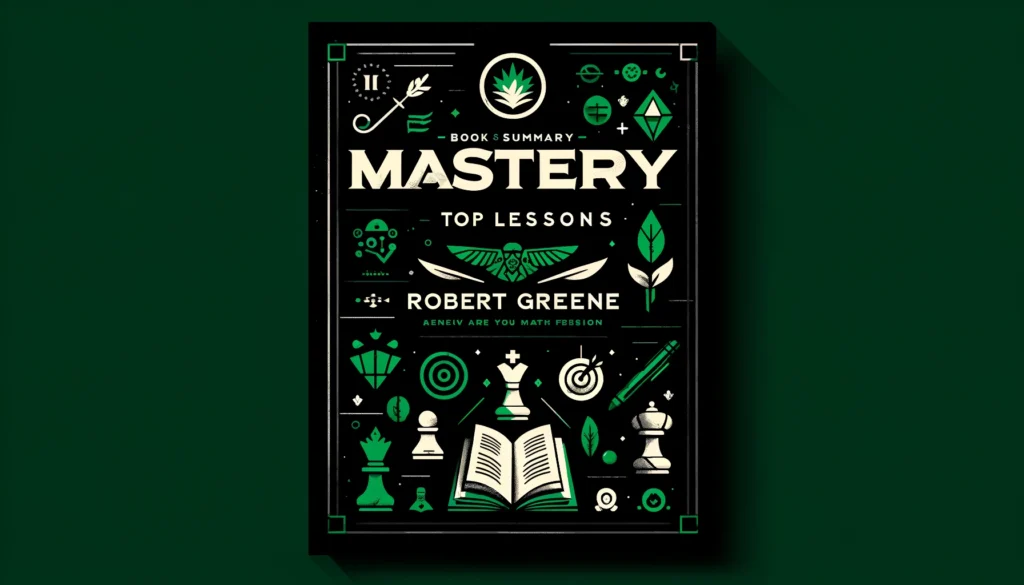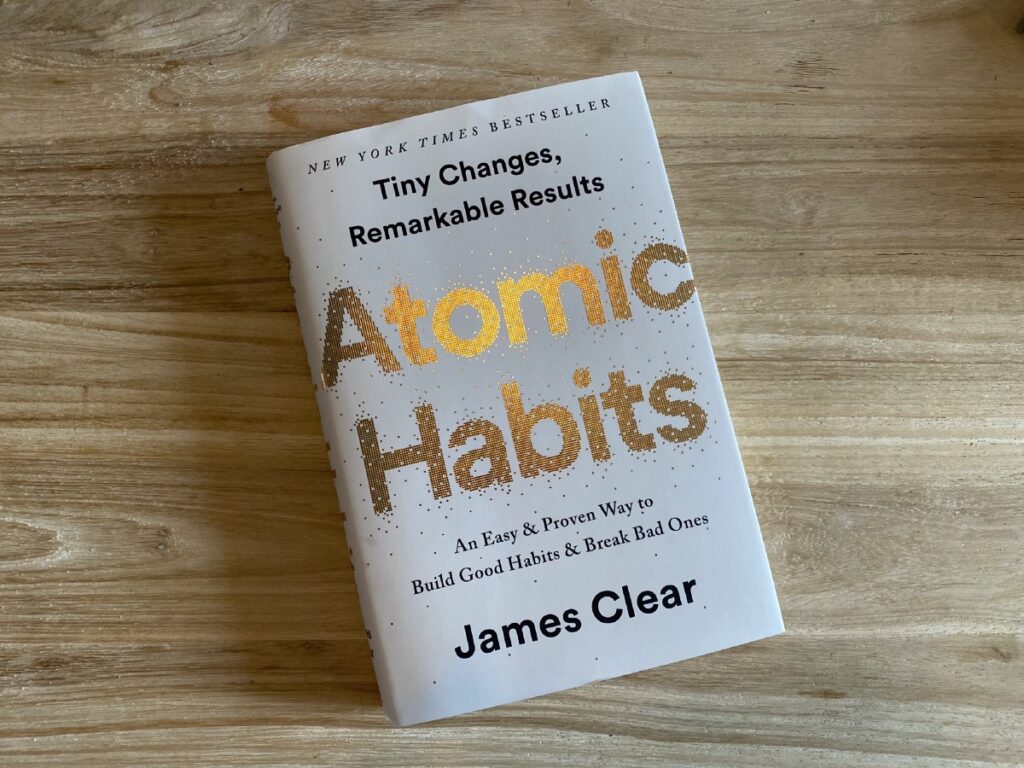Mastery is a process anyone attains by following the due process till the end and not giving in to negative emotions that may come in during the process.
Maybe it’s that new skill you just started learning or the career you’ve been pursuing for a while, Mastery by Robert Greene, gives you the template and process to go from a beginner to a Master in any field of choice. I for one finished Mastery by Robert Greene and have been reflecting on the amount of lessons learnt and how I could engage my brain to serve me better. You’ll get all the insights from the book and more from reading this book summary.
Three (3) Stages to Mastery
- Apprenticeship Stage
- Creative Active Stage
- Mastery.
You get the best form of Mastery in something you’re passionate about and naturally inclined to because this would help you follow through till the end. Robert Greene calls this your life’s task (what you were born to do).
Discover your life’s task. These natural inclinations that inevitably lead us to our life’s task are within us and arise from a deeper place.
According to the author, to discover your life’s task, you must return to your origins and reconnect with your inclinations. What were those things that first sparked the bulb especially when you were younger? You must love the subject and have a deep connection to it.
After discovering your different inclinations and passions, explore them and begin to niche till you find the perfect niche. Ensure you avoid the false path which is doing work you genuinely don’t love for the wrong reasons. After doing these successfully, you must move ahead without looking back to accomplish your life’s task.
“Your loyalty lies with your life’s task and commitment to bring it to full expression” ~ Robert Greene
Allow your inner voice to guide you. It’s also great to note that your life’s task may appear through what you’re naturally great at. Either way, you must attack it with discipline, focus and consistency.
Once you have discovered your life’s task, the first stage of Mastery begins; Apprenticeship.
Submit to an Ideal Apprenticeship.
This takes 5-10 years of being in an environment that supports what you want to be master in,
learning the skills in-depth and gaining feedback from a master or mentor.
Go for practical knowledge here, choose workplaces that offer the greatest learning opportunities. The goal of apprenticeship is the transformation of your mind and character, mastering yourself and your weaknesses.
Three steps in apprenticeship.
- Deep observation
- Skill acquisition
- Experimentation
In the deep observation stage, when you get into the field, observe and analyze keenly. Get previous materials about the field and devour, take cues from the environment, and drop any preconditions.
Observe the rules and power relationships there, especially the unstated ones. Relate your findings to larger trends in the field.
The next step, skill acquisition, you choose a key skill that is required for your life’s task and learn.
You watch, imitate and repeat the action until it becomes easier over the course of time. Practice for longer hours to become proficient. You must avoid multitasking, choose one skill that serves as a foundation for other skills and throw yourself in. You build strong neural pathways for the skill when you give it deep focus and concentration.
You transform yourself completely when you successfully immerse yourself in this stage.
And the final stage, experimentation. After gaining more skills and confidence, throw yourself to responsibilities. Take up projects that expose your work to the public and criticism. This train
you to handle criticism and forces you to grow.
Your Apprenticeship ends in this environment when you feel there’s nothing left to learn here.
Always think of yourself as a builder whose work and ideas affect people.
Strategies for Completing Apprenticeship.
Value learning over money, Always expand your horizon, look out for improvements, trusting the
process. Move towards resistance and push through failures, know how things work and
function, try things out and discover what you truly want.
Remember that there are no shortcuts in the apprenticeship phase because the brain requires
that length of time and process to deeply embed the complex skills and free the mind for more
creative ability.
How to Choose a Mentor
During your apprenticeship phase, you would need to submit to a mentor who is also a Master
in the field you want to venture into. You must choose mentors that connect with your life’s task.
Mentors help shorten the journey and guide you.
To deepen your relationship with your mentor, you must have skills valuable to them that can be
traded with the knowledge you would gain from them. Never be afraid to approach a mentor for
mentorship no matter their position. Books also can serve as great mentors by internalizing
whatever the author has written.
After internalizing their knowledge, you must move and never remain in the shadows. You must
surpass them in brilliance and Mastery.
It is important to note that at each stage of your journey to Mastery, you’ll need better mentors that are more suited to your needs and when you’ve outgrown a mentorship, move forward to look for better mentors.
“One repays a teacher badly if one remains only a pupil”
– Friedrich Nietzsche
To get more from mentors, have conversations with them, force them to hold the mirror that will
reflect you as you are and get proper criticism. Adapt their ideas to fit your circumstances and
inclinations, thereby giving room for your unique ideas to flourish. Be teachable also.
Employ Social Intelligence
On your journey to Mastery, you’ll meet and need people who could help you grow or bring you
down.
Social intelligence is to see people in the most realistic light possible. Observe and accept humans for who they truly are. Social intelligence involves looking more outward, honing our empathic and observational skills and gaining more understanding as to why people behave as they do and influencing them when necessary.
Social intelligence has two components;
The specific knowledge which pertains to specific individuals and how they see the world and the general knowledge which involves understanding all patterns of human behaviours that transcend all individuals plus darker qualities.
Pay less attention to what people say and more to their body language. Learn social intelligence
skills. You need to know how to read people, situations and your environment. Learn how best
to handle them to prevent them from hampering your progress.
Creative Active Stage
As you accumulate more skills, the mind becomes active and uses the knowledge in more creative ways. You must expand the mind with more knowledge, giving it room to make connections between different ideas.
To develop high creativity, combine your childlike spirit with apprenticeship and focus and discipline to follow a problem till the end. The dimensional mind surfaces after rigorous training during apprenticeship. It receives information, and ideas and process them into something new and original. Keep empowering and challenging the mind.
To awaken the dimensional mind, it requires 3 things.
- A Creative Task
- Creative Strategies and
- Insight.
Creative Task: Understand that creativity is an activity that involves the entire self. Choose a task
or project that’s important and connects deeply to you emotionally. It should be challenging and
you must have the skills that you already know the basics well so your mind can be focused on
higher things to pull off the task.
Creative Strategies to free up the mind and get into the flow
- Cultivate Negative Capability: according to John Keats, it’s the ability to embrace and
endure mysteries and uncertainties. Don’t be quick to judge and form opinions about
things. Give it time and think things through. Avoid confirmation bias. - Allow for Serendipity: serendipity is the occurrence of something when we are not
expecting. Getting ideas and solutions when we are not actively looking for them. The
brain loves to make connections and we must create that optimal environment that
allows for uncertainty. Allow chance to enter into the process.
Serendipitous moments can be formed through, widening your research as far as possible,
maintaining openness and looseness of spirit, thinking in terms of analogies, and metaphors and altering your perspectives. Jot down Serendipitous ideas.
The Creative Breakthrough (Insights)
During the process of doing creative work, it’s normal to get to points when we hit
roadblocks and start to feel doubts about our work. This period calls for taking a break and stepping
backwards to look at our work more objectively. Now, the brain and subconscious take over and
bring creative solutions to our consciousness.
It is great to give deadlines to our work so it gives the brain a timeline to use and help us complete the work.
The greatest impediment to creativity is impatience. Develop patience, follow through the
process thoroughly and develop outstanding work with your authentic voice. Connect your visions
and ideas to a bigger purpose.
Mastery: fuse the intuitive with the rational.
Mastery and a higher form of intelligence are attained by deeply immersing oneself in a field and
staying true to our inclinations. Through this immersion, masters gain an intuitive feel for the complicated components of their fields. This intuition, when fused with the rational process, exposes the mind to outer limits and a deeper understanding of the work. Thus intuition is developed beyond 20000 hours of work with intense focus and discipline and cannot be reduced to mere rationality.
In a nutshell, we can say a Master is someone who has spent over 20000 hours in a particular
field with intense focus and dedication.
Note that intuition must be subjected to deep reflections and reasoning. Make your years of study quantitatively rich, find ways to apply knowledge to practical use, reflect on
failures, questions conventions.
Strategies to Attain Mastery
- Connect deeply to your environment.
- Play to your strength. Understand your strengths and weaknesses. Lean on your
Peculiarities. - Transform yourself through practice. Anything can be learned through practice and
complex skills are learned by mastering basic skills which frees the brain to focus on
higher skills. - Internalize the details of your work. All living things are the combination of intricate
details brought to life by energy. - Widen your vision and perspective. Think beyond the moment and strategies.
- Always put yourself in other’s shoes before trying to win them.
- Synthesize all forms of knowledge. Understand that knowledge is connected and don’t
let mastery in one field prevent you from exploring other fields. Be part of a universal
process and extend your knowledge to other branches.
Having learned all this today, what would you be a master of? I have taken you through the journey of mastery through the lens of the author, Robert Greene and applying this strategies, you are on your way to attaining mastery. For more book discussions and reviews, consider joining Xandraly Reading Community.



